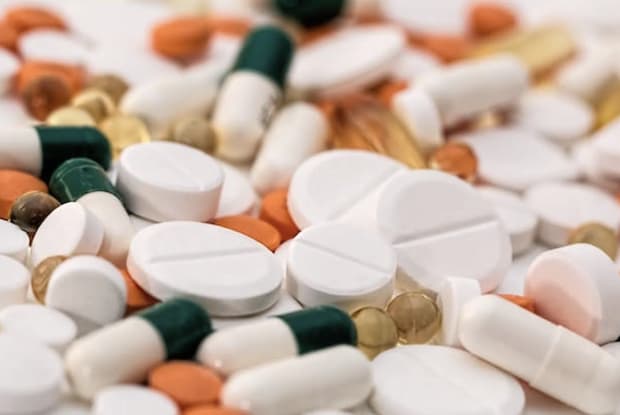Table of Contents
III. Psychotherapy for Depression
What Causes Depression?
Depression is a complex mental health disorder that affects more than 16 million American adults. [1] Depression is also known as major depressive disorder or clinical depression and can cause both mental and physical symptoms.
The most well-known symptom is feeling depressed. Feeling depressed is a common emotion that affects all of us at various points during our lives. However, depression can be overwhelming. This condition causes persistent feelings of hopelessness, despair, emptiness, guilt, and irritation almost constantly for an extended period of time. Other symptoms of depression include aches and pains, digestive problems, fatigue, memory difficulties, and weight changes. [2]
There is no one cause of depression. The condition is a result of genetic, psychological, and environmental factors. Depression is more common in people that have a blood relative with the condition or another mental health disorder. Scientists are researching a specific gene that may cause or worsen depression. It is believed that changes to the balance of hormones in the body may also trigger depression. [3]
There are several environmental factors that may lead to depression. Experiencing a stressful or traumatic life event can cause depression at the time, or later in life when the trauma occurs during early childhood. These events can include physical or sexual abuse, loss of a loved one, or financial problems. Another environmental factor for depression can be suffering from certain other medical conditions, including chronic pain, chronic illnesses, and attention deficit hyperactivity disorder (ADHD). [4]
Alcohol and drug abuse are also often linked to depression. Around 18 percent of people with major depression also have a drug abuse disorder, and around 16 percent have an alcohol use disorder. This can be a vicious cycle. While substance abuse can cause or trigger depression, depression can also lead to substance abuse. [5] Keep reading to learn about the best ways to deal with depression, including prescription medications, counseling, and lifestyle changes. There are several different types of prescription antidepressants that are used to treat depression. The most common of these are SSRIs, SNRIs, and atypical antidepressants. Selective Serotonin Reuptake Inhibitors (SSRIs): SSRIs such as Prozac (fluoxetine) are often the first medication prescribed to treat depression. This is because they are thought to be safer and cause fewer side-effects than alternatives. SSRIs work by increasing levels of serotonin, a neurotransmitter (chemical) in the brain. Serotonin-Norepinephrine Reuptake Inhibitors (SNRIs): SNRIs such as Cymbalta (duloxetine) also affect the brain’s neurotransmitters. However, these antidepressants work by blocking the absorption of both serotonin and norepinephrine. Atypical Antidepressants: As well as SSRIs and SNRIs, there are other types of antidepressants, such as monoamine oxidase inhibitors (MAOIs) and tricyclic antidepressants. These are less commonly prescribed. Atypical antidepressants such as Wellbutrin XL (bupropion) are antidepressants that do not fit into any other category. As well as prescription antidepressants, psychotherapy is also very effective at treating depression. Psychotherapy is also known as talk therapy and there are many different types available. Your doctor should be able to recommend a suitable form of therapy for you. Common therapy for depression includes interpersonal therapy and cognitive-behavioral therapy (CBT). Talk therapy is often used alongside antidepressants rather than instead of. Treating depression with therapy can help patients: Support is vital when dealing with depression. Often, a natural response to depression is to withdraw and avoid social interaction. However, it can be difficult to maintain a healthy perspective when you are on your own. Getting support from friends and family can make a big difference in your mental outlook. Many people with depression worry that they will be a burden to their loved ones if they regularly reach out. However, your loved ones want to help in any way they can. While meeting in person is a great way to stay connected, you can also use phone calls, messages, and video chats. Alternatively, you may find it easier to get support from a community group. There are many groups out there to help people with depression and your doctor may be able to suggest some. Groups with other people with depression can be more effective as they may be feeling the same way as you and are able to empathize more with how you are feeling. As part of a support group, you will also be able to help others. [6] It is vital that those with depression continue to look after themselves physically and mentally. It is important to eat healthily, get sufficient sleep, and continue with your hobbies. Your diet plays an important role in your physical and mental health. Often, those with depression may indulge in stimulants such as caffeine and sugar. This may be to counteract a lack of sleep, or in the form of comfort eating. Patients may also turn to alcohol, which itself is a depressant. Although these substances may make you feel better in the short term, they can worsen your condition and should be limited. [7] Sleep can be difficult for those with depression and around 80 percent of patients suffer sleep disturbances. Getting a good night’s sleep is beneficial for everyone, and especially those with depression. If you are struggling to sleep, then try avoiding using your bed for any sort of work or anything else that can cause stress. Turning off all electronics an hour before going to sleep and trying to go to bed and wake up at the same time each day can help your sleep schedule. [8] Finally, you should also try to make time for hobbies. You cannot force your brain to improve your mood, and hobbies and interests that you had before your depression may not give you the same enjoyment. However, if you continue to pursue the activities that you do enjoy, you may slowly notice a gradual improvement in your mood. [6] The content in this article is intended for informational purposes only. This website does not provide medical advice. In all circumstances, you should always seek the advice of your physician and/or other qualified health professionals(s) for drug, medical condition, or treatment advice. The content provided on this website is not a substitute for professional medical advice, diagnosis, or treatment.
Antidepressants

Psychotherapy for Depression
Keeping in Touch

Look After Yourself
